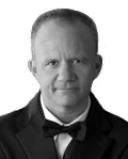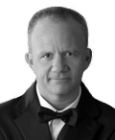
Career
On the Science of Goal-Orientation
Changing how science understands human action.
Posted January 15, 2009
It is roughly accurate to characterize the enterprise of science as explaining how one billiard ball strikes another and how that one ricochets into another, and so on. But when this approach is applied to people, it can fall short, because people are goal-oriented. For example, the philosopher John Searle noted that "If you describe a car and leave out driving, you've left out something important." He went on to say, "Cars are for driving; dollars for earning, spending, and saving; bathtubs for taking a bath."
Our goal orientation is part of the causal process:
- Why are you applying to medical school?
- Because I want to become a doctor.
- And why is that?
- Because I want to help people.
The goal motivates the causal process.
Another example is found in Searle's book Intentionality:
"Consider what it is like to learn how to ski. The beginning skier is given a set of verbal instructions as to what he is supposed to do: "lean forward," "bend the ankles," "keep weight on the downhill ski," etc. Each of these is an explicit representation, and, to the extent the skier is seriously trying to learn, each will function causally as part of the Intentional content determin¬ing the behavior. The skier tries to keep the weight on the downhill ski by way of obeying the instructions to keep weight on the downhill ski. Here we have a perfectly standard case of Intentional causation."
The idea of expanding our notions of causality to include goal-orientation can lead to new scientific questions. To return to the skiing example, as you become a more adept skier, you can simply think, "go faster," and, in fact, speed up. Searle sum¬marized the relationship between the material and final causes with, "Intentionality rises to the level of the background abilities." Think about somebody who has never driven a car. You must explain every little movement to her. As she learns, you explain less until you can just say, "It's your turn to drive."
If intentionality is a function of background abilities, what exactly is the function?
How does it vary across different domains?
Given what somebody has accomplished, can we work backward to figure out their level of background abilities?
Searle, J. 1983. Intentionality: An Essay in the Philosophy of Mind. Cambridge: Cambridge University Press.
Excerpted from Lasting Contribution: How to Think, Plan, and Act to Accomplish Meaningful Work by Tad Waddington. To find out more, go to http://www.lastingcontribution.com.

